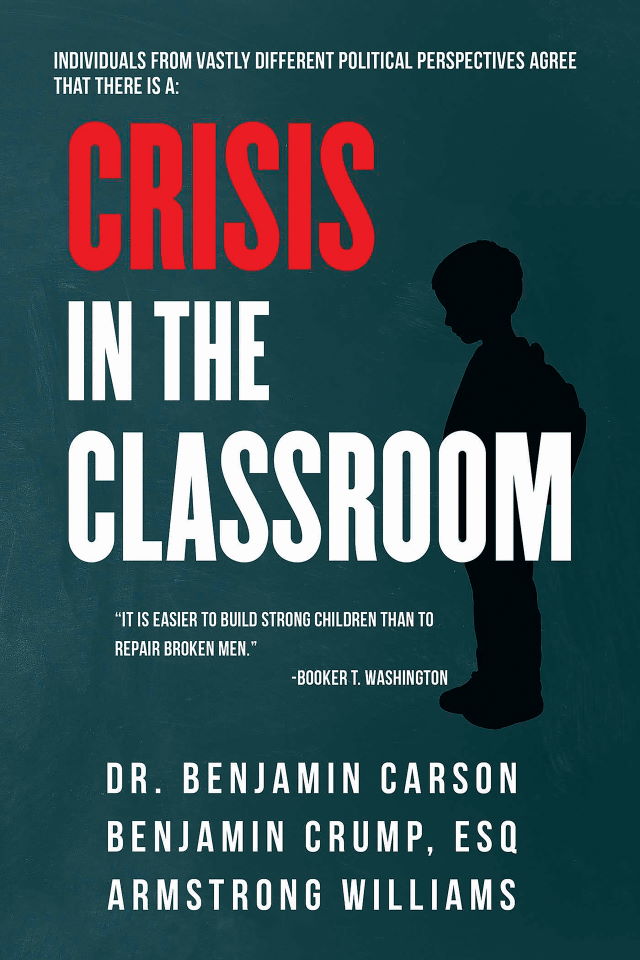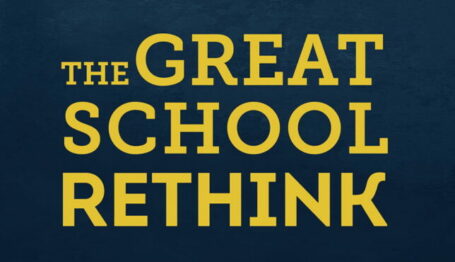Education Reform
The Crisis of Exploitation in the Classroom: The Past Is Prologue
 Education is the critical thinking that is the taproot of success in any line of work irrespective of complexity. Credit: Ground Picture. License: Shutterstock.
Education is the critical thinking that is the taproot of success in any line of work irrespective of complexity. Credit: Ground Picture. License: Shutterstock.

The Crisis of Exploitation in the Classroom (full series)
The Past Is Prologue | Educational Malfeasance
Teachers’ Unions | Growing School Competition
Editor’s Note: In Crisis in the Classroom, a renowned civil rights attorney, a neurosurgeon, and an entrepreneur join forces to critique the failure of American education and the devestation it is wreaking upon Americans and America. The crisis has many dimensions. Educators, parents, and politicians have failed the children, and the children are paying the price. They also warn, “Without an educated and engaged public, the United States will not long endure.”
Summary: In school districts across the country, we are seeing a shift in priorities from student to administrator—not even to the educator. This shift in priorities is destroying neighborhoods and creating a generation of leaders that will be less educated and more corruptible. Without an educated and engaged public, the United States will not long endure. Education must be our number one priority. It creates the human capital more valuable than all the gadgets or creature comforts in the world.
The Past Is Prologue
Education is the secret to happiness, comfort, and prosperity. Ignorance is the bedfellow of misery, poverty, and hardship. But education is missing in too many communities. Why? A combination of race and cultural exaltation of juvenile amusements over learning and wisdom.
The weakest are the most vulnerable to exploitation. Minorities are like putty in the hands of politicians and industry—a version of “No minority need apply.” Exploitation has no penalties or downsides.
Capital is needed to create more capital. With no resources, minorities find it difficult to gain economic traction. Their influence is diminished in proportion to their inability to make handsome political donations to obtain political access.
The current income disparity between average white and Black households is stark: $75,000 for whites and $45,000 for Blacks. With nearly twice as much money as Blacks and a third more than Hispanics ($55,000), it becomes increasingly clear that minorities have missed out on the opportunities enjoyed by their white counterparts. They have been marginalized in the political arena.

“Crisis in the Classroom: Crisis in Education” by Benjamin Carson, Benjamin Crump, and Armstrong Williams (Skyhorse Publishing, 2023). Credit: Amazon. License: https://amzn.to/3JBu5Dv.
Regressive policies by policymakers and the economic and social abuse of minorities have made them perfect targets for exploitation, cheap labor, and the other plentiful resources they have to offer. Race and impoverishment invite school administrators to exploit minorities for their own gain.
This cycle of poverty has become a generational—a seemingly insurmountable—problem because so many have been lost with no way out. An educator from Maryland, in discussing the faults of the Maryland school systems, told me that during her time as a high school teacher, the administration in her school was asking both her and the faculty to do things that were “criminal.” As she stated, “we were asked to pass kids . . . that had not learned . . . a concept, not a skill.”
After all, if there is a consistent stream of issues to be solved, and there is a consistent stream of deep-pocketed higher authorities willing to give you money in purporting to solve them, wouldn’t you continue to let the problem fester as a profit center? The massive influx of billions upon billions of dollars into failing educational systems has caused administrators to get rich at the expense of those who they were tasked to make succeed.
No archaeological expedition is required to discover these facts. High school dropout rates are public. Illiteracy rates are public. Crime rates are public. Funding is public. Salaries are public. The biggest controversy of the century is wide out in the open and ready to be told, yet nobody seems to have the courage—or inclination—to tell it.
When good men come to power, they can often be easily corrupted and led astray by the opportunity that lies before them. Money and power can lead any good man down evil paths.
Instead, we require brave men to seek office and do what must be done for the betterment of our communities. Yet, even those who grow up in these communities who grew up seeing the pain and suffering of their neighbors and who rise to power almost invariably do more harm than good. It is easy to blame these people for their misdeeds. But their intentions may be good. The road to hell, however, is paved with good intentions.
Think about it: From a young age, marginalized youth are put into a pipeline that treats the law as against their people. With this idea of inferiority, they easily eat up and regurgitate propaganda from the media and government figures that teach them that their impoverishment is a result of inferiority to a superior race. It gives them excuses and the opportunity to turn those excuses into a justification for indolence and continued failure.
This vicious cycle of wrongful belief in inferiority makes powerful politicians and community leaders merely parrot the ideas of the people who came before them. Those despicable individuals who divided us by race instead of unifying us by our common ancestry under God have had their views recycled and remade into mainstream ideals hidden beneath unobjectionable ones.
The past is a prologue. We are ruled by our past and we will continue to be ruled by it until we end this cycle of abhorrent ideals that serve only those who propagate them.
In the next installment, school administrators squandered billions of dollars while failing students.



